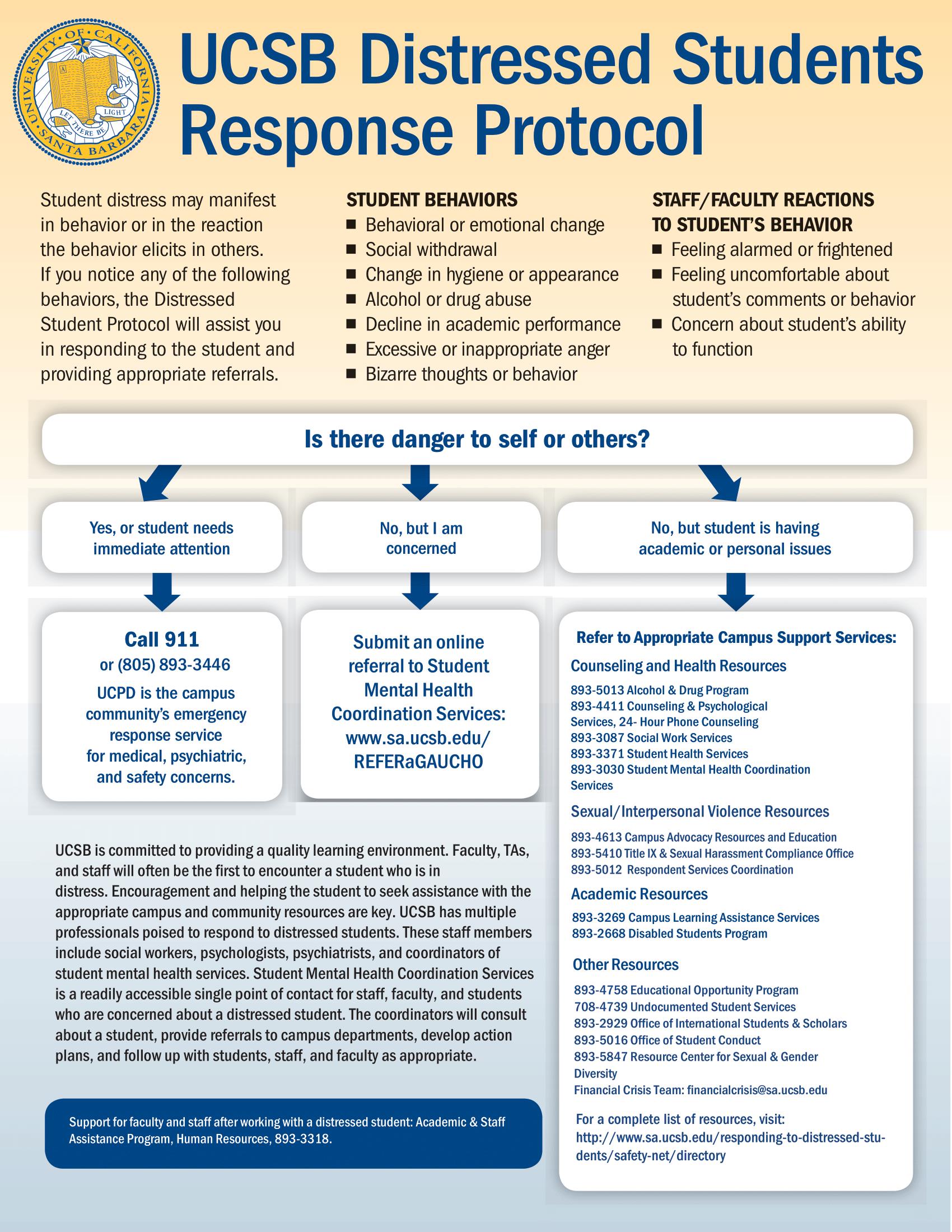UCSB recognizes that students may experience a variety of unique challenges and remains committed to supporting them. If you find yourself in urgent need of resources – be it food, housing, finances, or any other basic needs – know that there are campus/community solutions available to you.
Not sure where to start?
Use this page as a roadmap for identifying what actions are right for your specific circumstances.
Food Assistance
⚠️ If facing immediate food stress, visit the AS Food Bank or Miramar Pantry to pick up staple items.
💬 To speak to someone about food resources, get in touch with a Basic Needs Peer Advisor & Calfresh Advocate online or in-person.
🔎 To learn about other options, explore the Food Section of our site.
Housing Assistance
⚠️ If facing urgent housing need, email the Financial Crisis Response Team.
💬 To speak to someone about housing options, get in touch with a Basic Needs Peer Advisor online or in-person.
🔎 To learn about other resources, explore the Housing Section of our site.
Financial Assistance
⚠️ If facing immediate financial need, contact the Financial Crisis Response Team.
💬 To speak to someone about financial resources, get in touch with a Basic Needs Peer Advisor online or in-person.
🔎 To learn about other options, explore the Financial Section of our site.
Wellbeing Assistance
⚠️ If experiencing urgent psychological distress, call CAPS at (805) 893-4411 (this 24/7 line is also available after hours).
🔎 To learn about other mental health and wellbeing resources, explore the Wellbeing Section of our site.
Responding to Urgent Crisis
If you're working with a student in need and are concerned about their personal wellbeing, please refer to the Distressed Student Protocol to determine appropriate steps.
Referral Tips
- Let the student know that you think they'd benefit from using campus/community resources.
- Assure them that it's okay (and common) to seek help when one is facing hardship.
- Together, identify resources that may be useful to the student and determine how to access them.
- Know where the Food Security and Basic Needs Advising Center is and be comfortable directing students to the Basic Needs Peer Advisors for in-depth advising.
Example Language
- "It seems like this is an ongoing situation. Have you considered looking into campus resources for help? There are a lot of options available to students, and I think these ________ might be a good fit for you."
- "I'm glad you feel comfortable enough to talk to me about this. Why don't I connect you to a Basic Needs Advocate? They're well-trained on this topic and can help you come up with a plan."
- "I'll be honest, I'm not that familiar with this issue. Let's hop onto food.ucsb.edu and see if there are resources that might help you out."
Student Mental Health Coordination Services
Student Mental Health Coordination Services is a readily accessible single point of contact for individuals concerned about a student in distress.
The coordinators will consult about a student, provide referrals to campus departments, develop action plans, and follow up with students, staff, and faculty, as appropriate.
SMHCS can provide a coordinated university response to a student in distress.
When to Contact the Coordinators
It is appropriate to contact Student Mental Health Coordination Services if you are working with a distressed student and you:
- Do not know where to refer him/her
- Would like to consult about possible responses
to a student’s behavior - Notice a student’s behavior is making others
feel uncomfortable
- Believe there may be safety concerns in the future
- Have called 911 because of a safety concern
- Would like future follow up to know if the student is connected to appropriate support services
The Coordinators Will
- As needed, mobilize the Student Behavioral Intervention Team and/or the Students of Concern Team (may include Counseling & Psychological Services, Student Health Services, Office of Student Conduct, Residential & Community Living, Disabled Students Program, UC Police Department, and others)
